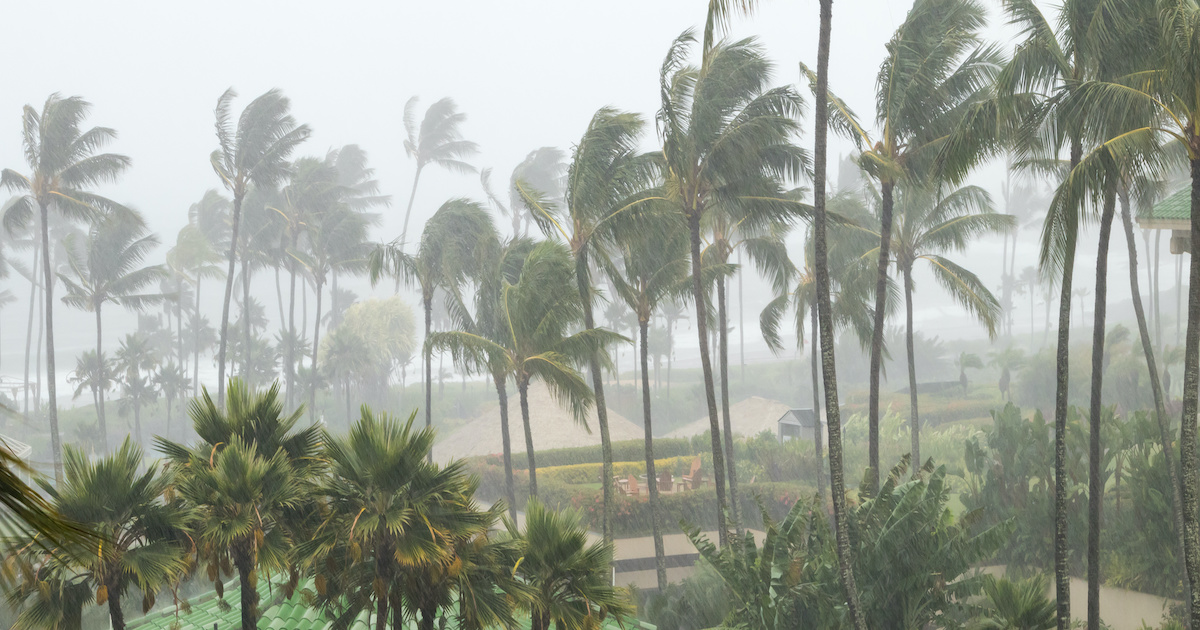There’s often a misconception many believe that damages from tropical storms and hurricanes are limited to only those that live near the shore. However, according to Ready.gov, these storm effects can be felt as far as 100 miles inland! So, you may be wondering now, “what can I do to prepare my residence for a tropical storm or hurricane?” Then keep reading as we discuss leading storm safety protocols to take for your lawn, the exte
rior of your home, as well as your home’s appliances in preparedness for this year’s hurricane season.
Fortunately, as catastrophes go, we typically get some warning when and if a hurricane or tropical storm is on its way. The most important thing is for you and your family to remain safe before, during, and after a storm. The easiest way to ensure the safety of your home and loved ones is to prepare before there is warning.
Here are three areas of your home you should prepare for hurricane season:
1. Your Lawn
• Declutter your lawn so that potted plants, yard accessories, outdoor furniture, and garbage cans do not become a threat when paired with extreme winds. Bring potted plants and ungrounded furniture inside. Anything too heavy or hazardous to bring inside should be securely chained down.
• Routinely trim your shrubs and trees to get rid of loose, dead, or dying branches so they won’t end up in your living room or harming one of your neighbors. Precisely, branches that fall within 10 feet of your house should be trimmed and maintained throughout the hurricane season. Especially any limbs that fall close to a window!
• If you have a pool, always be sure its cover is tightly secured before a storm approach. If you have a shed, make certain it’s securely closed– you do not want its door becoming one with the wind.
• Clean out your drainage areas throughout the season by removing any leftover leaves, branches, or other debris. This will prevent water from building up and causing an overflow. Standing water should also be avoided because it can loosen the root systems of your trees, which may lead to them falling during heavy storms.
2. Your Properties Exterior
• The Federal Emergency Management Agency (FEMA) recommends cleaning out your downspouts and removing or tying down those that hang loosely.
• To aid in reducing roof damage, you might require setting up additional bands or clips to secure it to the house structure. These tasks can be dangerous and safely be done by a professional.
• In extreme winds, it is possible that windows and doors can blow off their hinges. To further the stability of your home, invest in storm shutters. If storm shutters are not in your budget, be sure to board all windows with marine plywood.
• Board up your doors too, and yes, that does include your garage door. Any open hole to your home is an invitation for destruction during a hurricane. When outside heavy storm winds meet the tranquil air inside your home, it can consequently evoke a collapse in your property’s framework.
3. Your Properties Interior
Believe it or not, there are also safety measures that should be taken inside your home
• Re-adjust your fridge temperature to the coldest set up so that if power is momentarily lost, there’s a better chance your food won’t spoil.
• Flooding is always a concern when it comes to these types of storms. Be sure to know what kind of flooding zone you live in and your evacuation route if ever needed to be taken. If during a storm you must leave your home, make sure to unplug everything. This consists of unplugging the fridge, dishwasher, washing machine, dryer, stove, and any other household appliances you may have plugged in. Going into an area swamped with electrically charged water can be fatal.
• To prevent rust, deterioration, and mechanical failing, move small devices, such as TVs, vacuum cleaners, and stereos, to higher ground or onto a tabletop in case of flooding. You may want to do the same with rugs.
• Switch off your house’s primary water valve– it’s generally on a border wall in a straight line from the water meter– to help prevent flooding from broken pipes. Cut the electrical energy at your circuit breaker and turn off the gas at each appliance. Allow a specialist to turn off your primary gas line.
Preparing your home before a hurricane or tropical storm hits is essential.
Entering hurricane season otherwise can be consequential if preparedness is not done correctly and promptly. While prepping is never 100% guaranteed, taking these steps can further secure the safety of your home, your and your neighbors.


